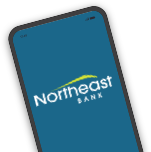Fraud Prevention Checklist for Consumers
Here are some things you can do immediately to help protect yourself against fraud.
Financial Security
Monitor Your Accounts:
- Regularly check bank statements, credit card statements, and credit reports for any unusual activity.
- Set up alerts for your bank and credit accounts to receive notifications of any suspicious transactions.
- Report any unauthorized transactions to your bank or credit card issuer immediately.
Use Secure Payment Methods:
- Use credit cards over debit cards for online purchases as they offer better fraud protection.
- Avoid using public Wi-Fi for financial transactions. Use a secure connection or a VPN.
- Do not store your payment information on websites or apps unless necessary.
Personal Information Protection
Secure Your Devices:
- Use strong, unique passwords for all devices and accounts.
- Enable multi-factor authentication (MFA) wherever possible.
- Keep your software and operating systems updated with the latest security patches.
- Install and regularly update antivirus and anti-malware software.
Guard Your Personal Information:
- Do not share personal information (e.g., Social Security number, bank account details) over the phone, email, or text unless you are sure of the recipient's identity.
- Shred documents containing personal information before disposal.
- Be cautious about the information you share on social media.
Online Safety
Recognize Phishing Scams:
- Be skeptical of unsolicited emails, texts, or calls asking for personal information.
- Check the sender's email address and look for signs of phishing, such as spelling errors and generic greetings.
- Hover over links to see the actual URL before clicking and avoid clicking on suspicious links.
Shop from Trusted Sources:
- Ensure the website is secure (look for "https" and a padlock icon in the address bar) before entering payment information.
- Research the seller and read reviews before making a purchase.
- Avoid deals that seem too good to be true; they often are.
Physical Security
Protect Your Mail:
- Retrieve your mail promptly and use a locked mailbox if possible.
- Be cautious of mail forwarding scams and verify address changes with the post office.
- Mail check payments from directly inside your post office when possible.
Safeguard Your Cards and Documents:
- Carry only essential cards and identification.
- Keep your wallet or purse in a secure place and be vigilant in crowded areas.
Identity Theft Protection
Monitor Your Credit:
- Check your credit reports regularly (you are entitled to a free annual report from each of the three major credit bureaus).
- Place a fraud alert or credit freeze on your files if you suspect identity theft.
Respond Quickly to Fraud:
- If your identity is stolen, contact your bank, credit card companies, and the Federal Trade Commission (FTC) immediately.
- File a police report and keep a copy for your records.
Educate Yourself
Stay Informed:
- Keep up with the latest fraud schemes and tactics.
- Attend fraud prevention seminars or webinars offered by community organizations or financial institutions.
By following this checklist, you can significantly reduce the risk of becoming a victim of fraud. Stay vigilant and proactive in protecting your personal and financial information.



